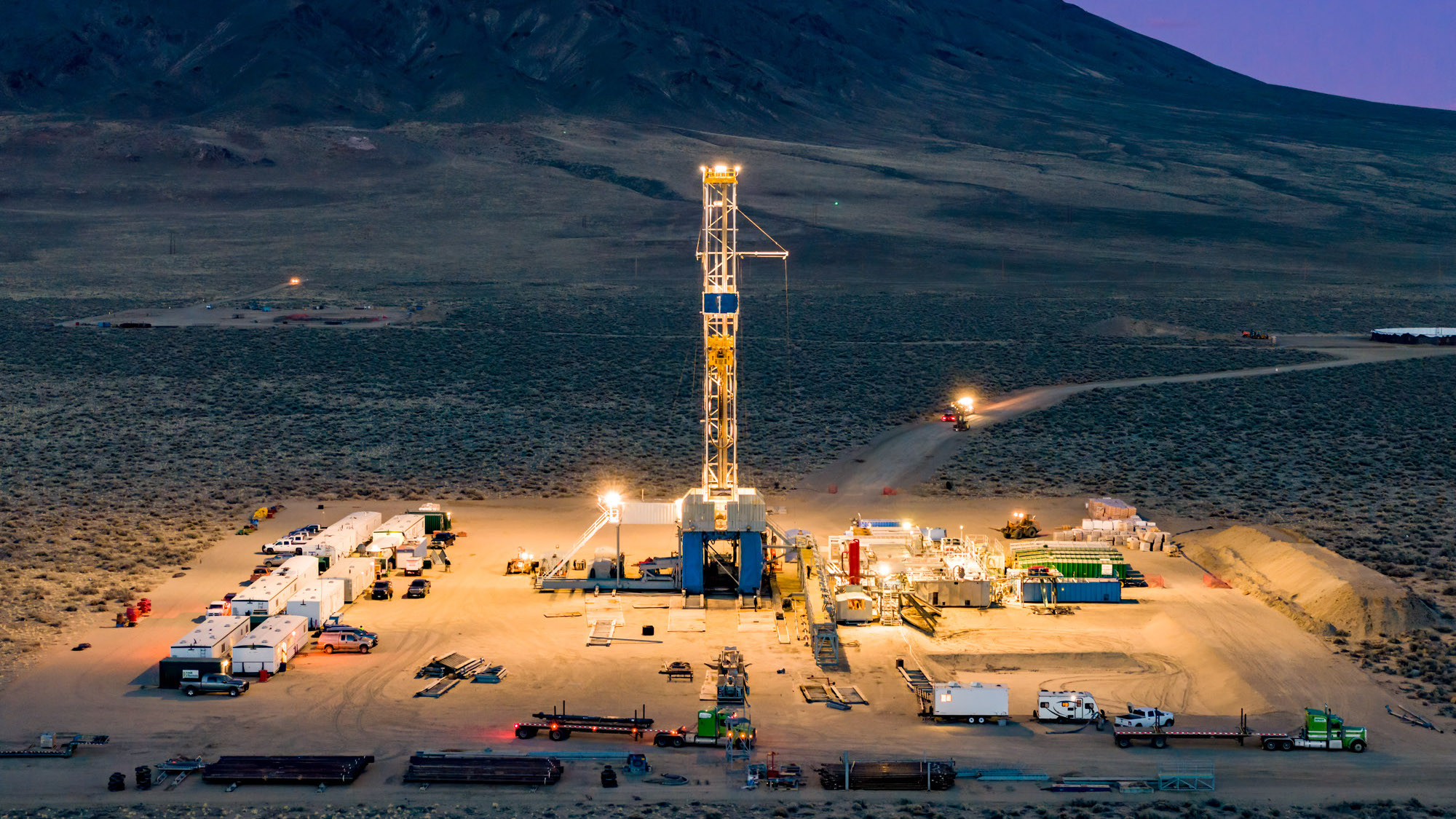

Google’s first-of-its-kind geothermal power plant is now fully operational in Nevada, marking a major moment in the company’s overall goal to power its office campuses and data centers using carbon-free energy by 2030. Built in partnership with the green energy startup Fervo, the facility feeds clean electricity into a local grid connected to the tech company’s Google Cloud operations in Las Vegas, as well as data centers in Henderson and Reno.
[Related: An American start-up claims it just set a geothermal energy record.]
According to a November 28 announcement, Fervo’s geothermal energy procurement differs from traditional methods through its reliance on drilling techniques developed within the oil and gas industry. Known as an enhanced geothermal system (EGS), Fervo first drilled a pair of 7,700 feet deep wells into a gas reservoir before connecting them through nearly mile-long horizontal pipes. Fluid pumped into the reservoir then heats the underground region as high as 376 degrees Fahrenheit. Steam then travels to aboveground turbines, which generate clean electricity. During the entire procedure, fiber optic wiring within the wells provides real-time performance monitoring.
Fervo successfully completed an industry-standard 30-day trial run over the summer at its Project Red commercial pilot site in Nevada. At the time, the geothermal plant produced 3.5 megawatts of sustained power—enough to power roughly 2,600 homes. Now, that same energy will help keep the lights on at a handful of Google’s local, resource-devouring data centers.
Geothermal production is an increasingly attractive alternative power source to other sustainable industries such as wind and solar, since it is capable of providing around the clock energy regardless of time or weather conditions. According to the US Department of Energy, the country rests above enough geothermal reserves to theoretically power the entire world—yet geothermal energy supplied roughly 0.4 percent of all US energy in 2022. Federal regulators estimate up to 120 gigawatts of geothermal energy could come online within the US by 2050, enough for about 15 percent of the country’s anticipated electricity needs.
[Related: How Google Search is helping ‘greenwash’ oil companies.]
Google first pledged carbon neutrality in 2007, and continues to pursue its ambitious goal of carbon-free power at all its office campuses and data centers by 2030. Such a feat remains a massive undertaking—current geothermal kilowatt-per-hour costs are about 90 percent more expensive than the Department of Energy’s current goal of $45/kWh by 2035. Over the summer, Fervo CEO Tim Latimer described the Nevada facility’s production costs as “significantly” higher than the DOE goal, but expects the price to significantly lower in the coming years as the technology scales. Fervo clearly wants to help with that scaling—the company is currently working on a 400 megawatt geothermal facility located in Utah scheduled to go online in 2026.
